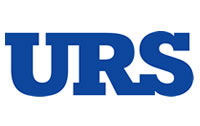Don’t fear delegation, and seize opportunities to build business relationships when managing others.
When hourly employees get promoted to line supervisor or when young engineers get tapped for a manager position, they should be proud of their accomplishment. Typically a promotion comes with added responsibility, the autonomy to make decisions of larger scope, and increased pay and benefits.
The responsibility of leading a team is not for everyone. Many employees are content to work on equipment and don’t want to make the leap to being a formal leader. The prospect of losing overtime pay can help justify this choice.
I want to focus on those who do want to move into a leadership role. To be successful as a new line supervisor or manager, an emerging leader needs to navigate a transition. The most difficult part of this is recognizing the shift from being the person primarily responsible for doing the front-line work to being someone who must rely on getting work done through other people. Many times new leaders will understand that they are no longer a technician. But they have a difficult time psychologically letting go of the skills and knowledge that led to their promotion.
It will be very noticeable to the team members who work under the new leader when that leader oversteps their role. A new leader should recognize that someone provided opportunities for them to learn, practice skills, and develop expertise. When leaders overstep and do work at the level of their team members, they take away the opportunity for those team members to grow and show their capabilities.
If the leader oversteps, often he or she will create an environment in which the team members begin to let the leader do more and more. In the extreme, one or more team members resort to what I refer to as “I’m just a wrench” (IJAW) mentality. IJAW is a passive-aggressive response team members use when they are trying to convey that the boss is overstepping and interfering in their roles.
To be a good line supervisor or manager, you must stop thinking about yourself and start thinking about how to enable your team to perform at the highest possible level. This is much easier said than done when you’ve had a history of high individual performance. It’s tough to let go.
There are three things that new leaders can do to help themselves through the transition:
- Clearly and consistently define what work needs to be done, and assign the work to specific team members. In leadership literature, this is often presented as empowerment. Knowing how to clearly and consistently delegate work frees the leader to work on tasks appropriate to his or her role and gives team members the opportunity to perform at the highest possible level. Delegation is not abdication! The leader is still accountable for the tasks’ accomplishment. Delegation lowers anxiety and results in an environment where trust and teamwork can flourish. When people are uncertain about who is responsible for what, they either overlap in their efforts or they sit back and wait for clarification. Both result in a huge amount of wasted time.
- Be approachable and proactive. Make available the things that team members need to be successful. When a leader does not ensure that resources, guidance, and training are available, team members experience high stress levels. They see when the boss is not doing enough to help them accomplish assigned tasks. Leaders must be available to hear about issues, monitor progress, identify barriers or deficiencies, and take action to improve conditions for the team.
- Strengthen relationships among those individuals who can influence the team’s overall ability to perform. This includes senior leaders and support personnel. Leaders who are doing their jobs properly depend upon other peer supervisors and managers. For example, maintenance supervisors depend on operations supervisors to provide opportunities to perform maintenance and on purchasing managers to buy tools and parts for maintenance tasks. Senior leaders provide funding and authority to carry out assigned tasks. Successful emerging leaders help build relationships at all levels that enable their teams to perform at high levels.
It’s not always an easy transition, but strategic delegation, responsiveness to team needs and efforts to foster relationships throughout the organization will help position a new leader for success.
Read Tom Moriarty’s monthly column, Human Capital.


















